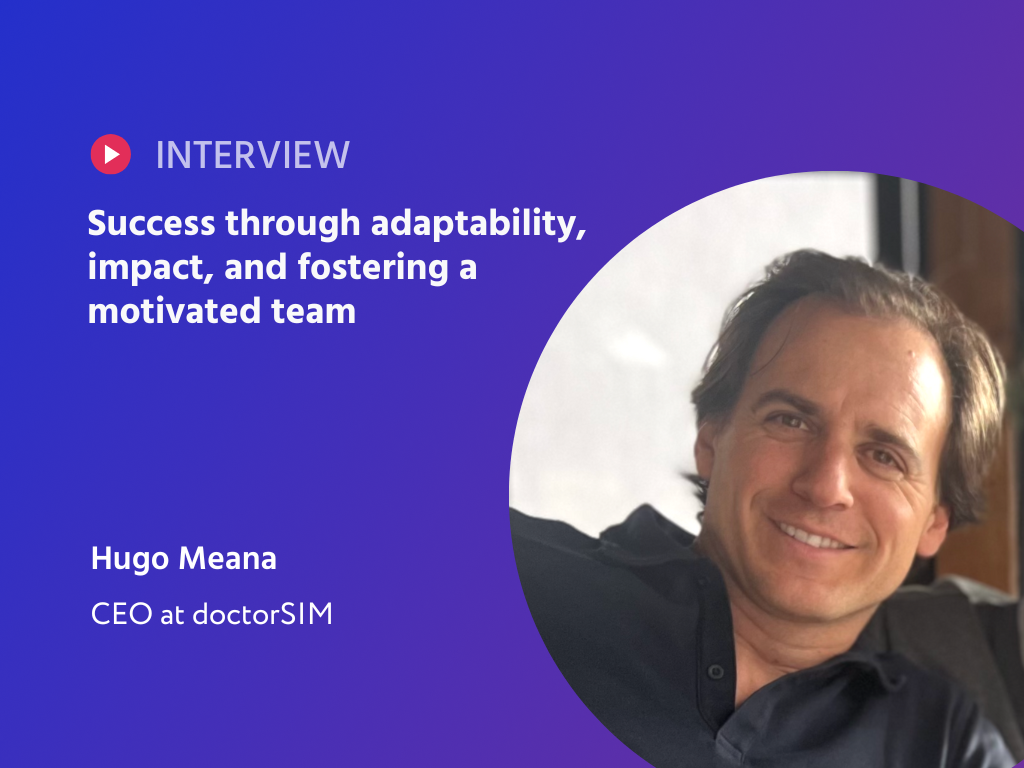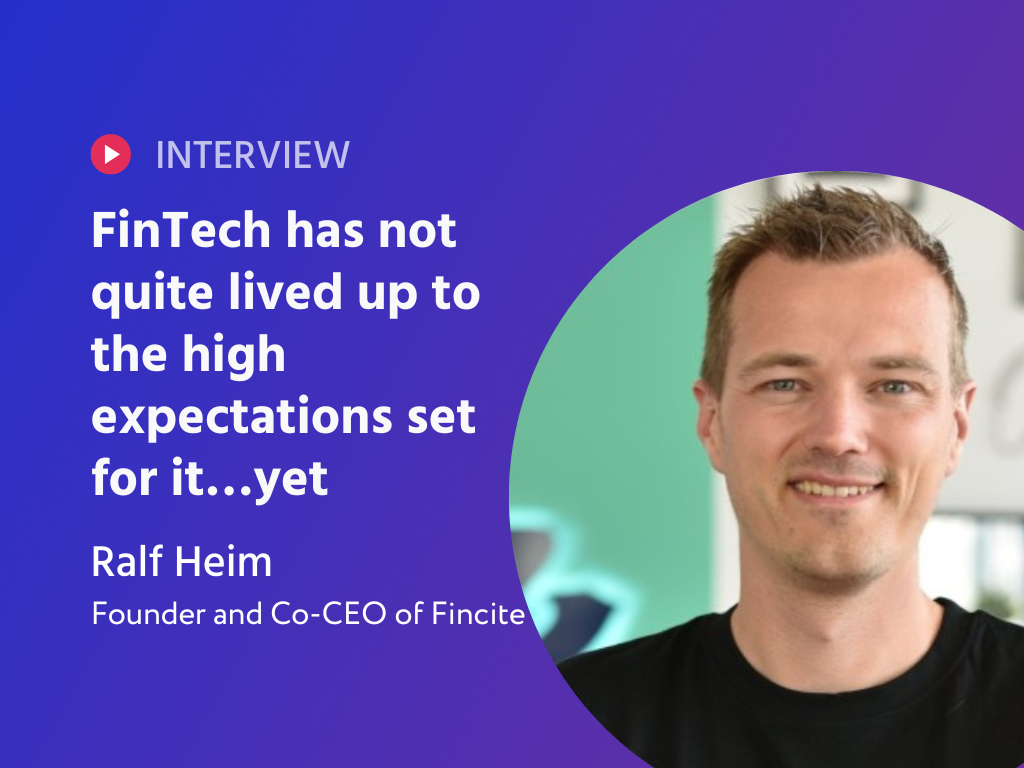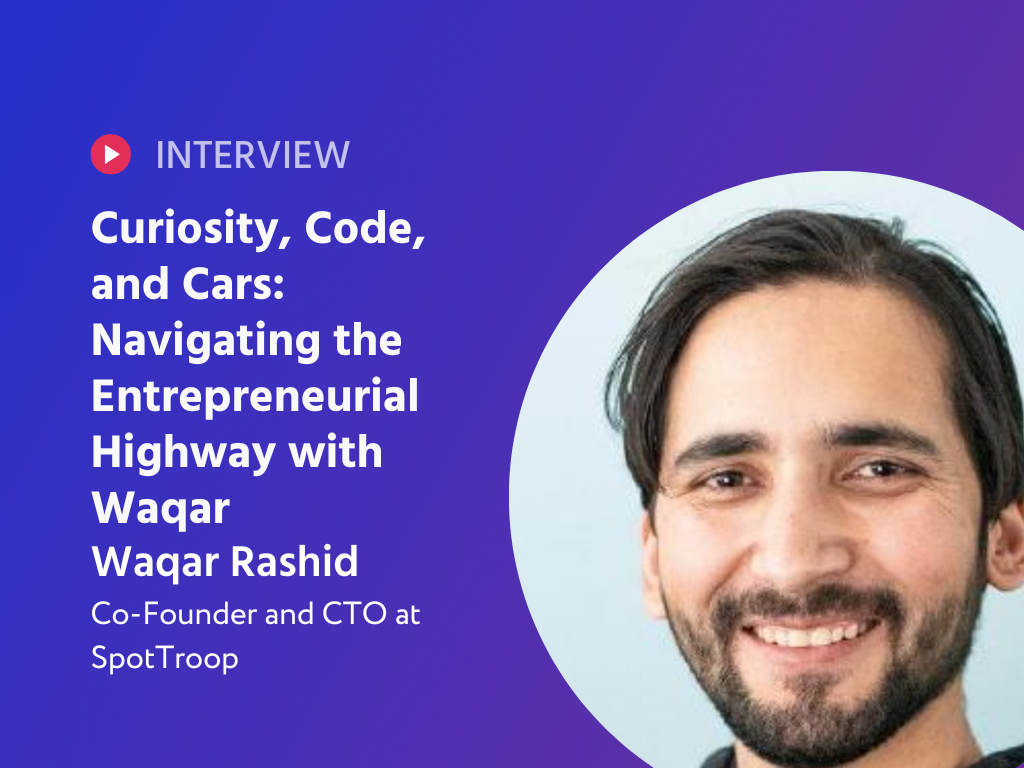In this era of profound environmental concern, George Sandilands, the Vice President of Sage Earth: Carbon Accounting, stands out as a beacon of hope and innovation. His remarkable journey from a music producer and DJ to a pioneer in carbon accounting software paints an inspiring picture of adaptability and ingenuity.
In our latest interview, Sandilands explores the intersections of business, passion, and the urgent demand for climate change mitigation. We delve into his unique career trajectory, the environmental impacts of his previous endeavors in the music and events industry, and his newfound mission in Sage. Fueled by an ambition to reduce wastefulness, Sandilands presents an intriguing dialogue on his role in the climate crisis, discussing his move from the frivolity of the entertainment industry to the serious business of carbon accounting.
This interview provides valuable insights into a purpose-driven entrepreneur who's making a difference. It's an illuminating and thought-provoking journey you won't want to miss.
Tune in to the Beats of Change: DJ Turned Carbon Accounting Pioneer Strums a Greener Tune
When you meet George Sandilands, the Vice President of Sage Earth: Carbon Accounting, it's hard not to be struck by his infectious energy. From the early days of collecting records, DJing, and producing music, to his current efforts to combat climate change, Sandilands embodies a deep sense of purpose that is difficult to ignore. The rhythm of his life now revolves around helping small businesses understand their carbon footprint, a challenge he took up after witnessing the wasteful culture in the music events industry.
"Music was my first passion," shares Sandilands. "But over time, I was searching for a deeper social purpose. When you see grand assets built at great expense, only to end up in the bin the next minute, it's disheartening. I really wanted to do something about the environmental impact of these events." His frustrations served as the driving force behind the birth of his carbon accounting software, a tool designed to calculate emissions and resource consumption, nudging businesses towards a more sustainable path.
When you see grand assets built at great expense, only to end up in the bin the next minute, it's disheartening. I really wanted to do something about the environmental impact of these events
While he acknowledges that balancing one's pursuit of dreams with other aspects of life can be a challenging dance, Sandilands also argues that it's an integral part of the journey. He notes, "I've always been gifted with the ability to see opportunities and take risks. I see the climate crisis as one of the greatest threats we face today, but also an opportunity for change. It's everybody's responsibility to do something. Even if it's just having conversations about what could be done or changing our life habits by 5%."
Sandilands' journey is a testament to the fact that it's possible to pivot one's passions and apply them towards new, critical challenges. From orchestrating beats to advocating for sustainable business practices, this DJ turned environmental entrepreneur is playing a tune that resonates with the urgent need for environmental action.
Breaking the Status Quo: George Sandilands' Vision for a Net Zero Future and the Role of SMEs
In the wake of the escalating climate crisis, George's interview brought forward several thought-provoking insights into the role of small and medium-sized enterprises (SMEs) in curbing global carbon emissions. Foremost, George shed light on the alarming distribution of global emissions, where food and the built environment, comprising homes and businesses, contribute about 30 to 40 percent each. This staggering figure magnifies the urgency to transition towards net zero and rethink our approach since the Industrial Revolution. However, this necessary shift is fraught with challenges, with lobbying forces striving to maintain the status quo, especially within profitable sectors such as oil and gas. "Every industry, whatever business you're in, there is a journey to go on to work out how you can continue to do what you do or change what you do in order to be a part of that net zero future," George articulated, illuminating the scale of the challenge yet also the potential opportunity.
Every industry, whatever business you're in, there is a journey to go on to work out how you can continue to do what you do or change what you do in order to be a part of that net zero future
George maintains an optimistic viewpoint, emphasizing that the transition to renewable infrastructure can and must be expedited. While acknowledging that change can't happen overnight, he asserts that a more rapid transition to renewable infrastructure is possible. For George, effective reduction in emissions starts with a dramatic lifestyle change. In his view, embracing a four-day work week and advocating for remote work could lead to massive emission reduction, signaling a strategic shift in our work-life balance. "We should all work less…That seems like a really great way to reduce emissions because people slow down a bit, chill out at home, and don't have to drive to work," he proposed, a quote that succinctly captures his fresh, radical vision for a greener future.
The third part of the interview revealed George's strategy for engaging SMEs in the carbon reduction process, with his company offering a tool to support, educate, and provide resources for small businesses to measure and manage their emissions. "Can we make a tool to help and inform and support and educate and provide the tools for the small businesses or multisector to get on the journey?" he asked, pointing out the need for more tools that cater to smaller businesses. George’s vision is to help businesses understand their carbon footprint and offer them a tailored path to decarbonization, a sustainable, future-focused solution to one of our most pressing global challenges.
Legislation, Decarbonization, and Ethical Business: Charting a Course Toward a Sustainable Future with George
In our lively exchange with George, he astutely outlines how his software is instrumental in assisting companies hit the elusive emissions targets, whether driven by stringent legislation or corporate goodwill. Drawing from a broad pool of user personas, George highlights the trend of businesses that leverage their tools to demonstrate their industry leadership in environmental sustainability. However, their view extends beyond just carbon emissions, acknowledging a myriad of challenges from biodiversity to modern slavery, that any ethically minded business ought to address.
George's passionate quote underscores the urgency of corporate social responsibility, "I guess the message to businesses is, even though carbon accounting or even accounting for any kind of environmental impact is still not the norm today…it's coming thick and fast and for businesses wanting to get ahead of that they should do it today. But, they should do it because it's the right thing to do." This perspective challenges companies to not just view emissions management as a legislative hurdle, but as a moral obligation that shapes their industry and societal reputation.
The conversation takes an intriguing turn as George explores the controversial duality of countries like China, grappling with ethical issues on one hand and leading the decarbonization movement on the other. He opines that the strong-handed leadership in these regions, while having its downsides, enables swift, large-scale change, something western democracies may struggle to achieve due to their free-market economies. Yet, he is adamant that the journey to net zero emissions should be a fair and inclusive transition that leaves no one behind, signaling the complexity of striking a balance between climate change mitigation and socioeconomic sustainability.
George's Vision for a Sustainable Future: A World Within 15-Minutes
Revolutionizing Commutes: Driving Toward 15-Minute Communities
George is a firm believer in making our commutes as eco-friendly as possible, encouraging not only the use of electric vehicles over petrol ones, but also advocating for a concept he calls '15-minute communities'. He recalled his own experiences, saying, “I used to drive like an hour and a half each way for a job when I was like, you know, 17, just trying to bring some money in… I'm driving a vehicle on my own, across the country, just to get to a job that I work to then drive back home.” George recognizes this as a widespread problem and sees an opportunity for change. In his envisioned 15-minute communities, everything you need – from your school to your local shop – is a mere 15-minute journey away, reducing the need for long commutes.
Facing the Climate Crisis: The Urgency of Transition
Understanding the urgency of the ongoing climate crisis, George discusses the catastrophic effects of not taking action immediately. He points out the harsh reality, saying, “There are island nations already in discussions about mass migration of their entire people… that's got to be incredibly scary if you're in a leadership position responsible for a nation.” George’s plea to the world is simple and clear: "We need to stop some of this insanity going on."
Inspiring Change through Music and Entrepreneurship
For George, music plays a significant role in inspiring societal change. An active supporter of the organization 'Music Declares an Emergency,' he believes that "art has a really important place in, in change… it's the next generation and the one after that they need to be inspired by the things that we're saying." Moreover, George's entrepreneurial spirit sees him working on a charity called 'Basser,' aimed at empowering underprivileged youth through entrepreneurship, demonstrating his dedication to paving a sustainable and equitable path for the future.
"We are going to transition and it is going to be the children and ultimately we're leaving them with this world. So, I want to do everything I can to try and make sure it's not" - George's vision serves as a poignant reminder of our collective responsibility in shaping a more sustainable and inclusive world for future generations.




